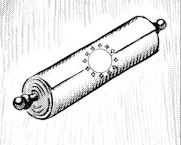You seem to have missed where I pointed out the Harpers resemble how the CIA is portrayed IN FICTION.
I'm not sure I can make it any clearer than bold, all caps and big text. Should it be bright blue as well?
The CIA in fiction frequently has sub-factions and factions that are working against the rest of the CIA or the like. It's a common plot in spy fiction, whether it's 24 or Bourne or whatever (in 24 Season 2 it was actually the NSA, but same difference). There are often breakaway units too in fiction too. Add in CIA characters in fiction often giving "I'm doing a dirty job for freedom and liberty!" speeches (whether good guys or bad guys, it's just meant to be understood differently in the latter case!), and you have another big similarity. Harpers love to go on about how they're doing it for the greater good when it looks awfully like they're engaged in a blood-drenched proxy war with the Zhentarim!
It's funny to me because when I read the Harper's original goals back in the early 1990s, before Code of the Harpers even I think, they seem laudable:
1) Preserve lore and prevent it from being destroyed.
2) Balance nature and civilization.
3) Protect the innocent from evil.
But pretty much immediately they started straying into other territory, and at some point in the 1990s this "preserve individual liberty" thing came in (I think it's a result of focusing on point 2 of the Harper code and ignoring the rest), I don't know where from, but which obviously potentially conflicts with those three to a significant degree, and that's what a lot of later Harper stuff has focused on, and which on makes them more fictional CIA-like.





